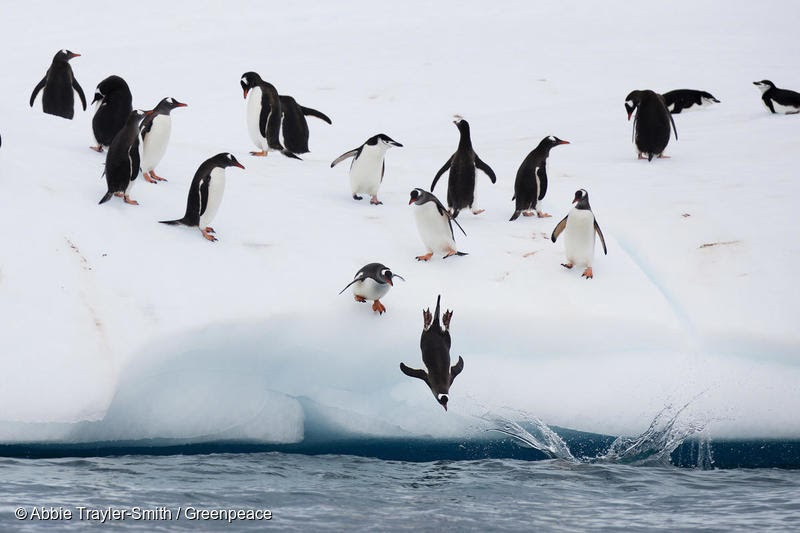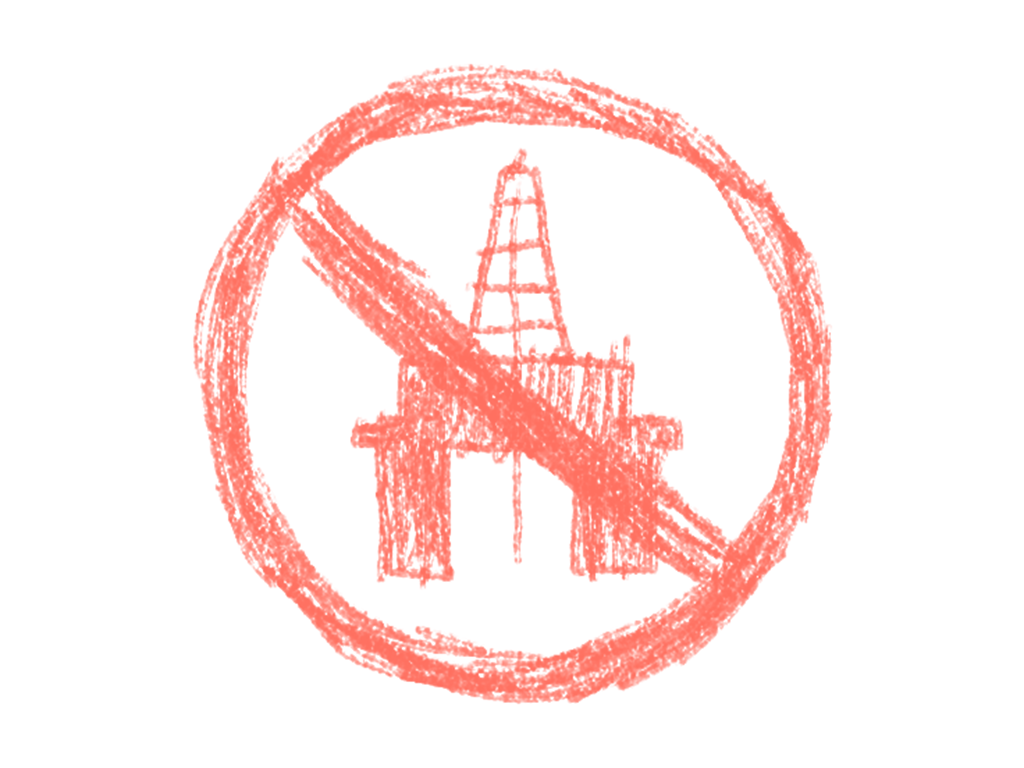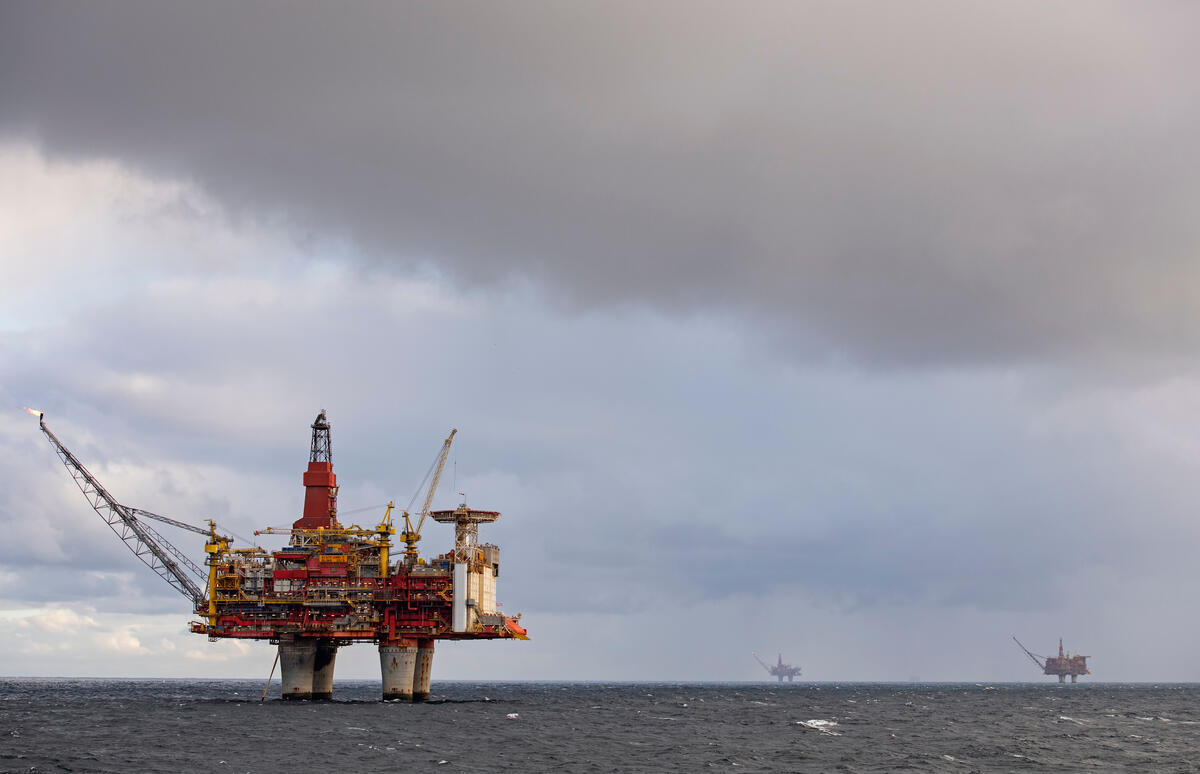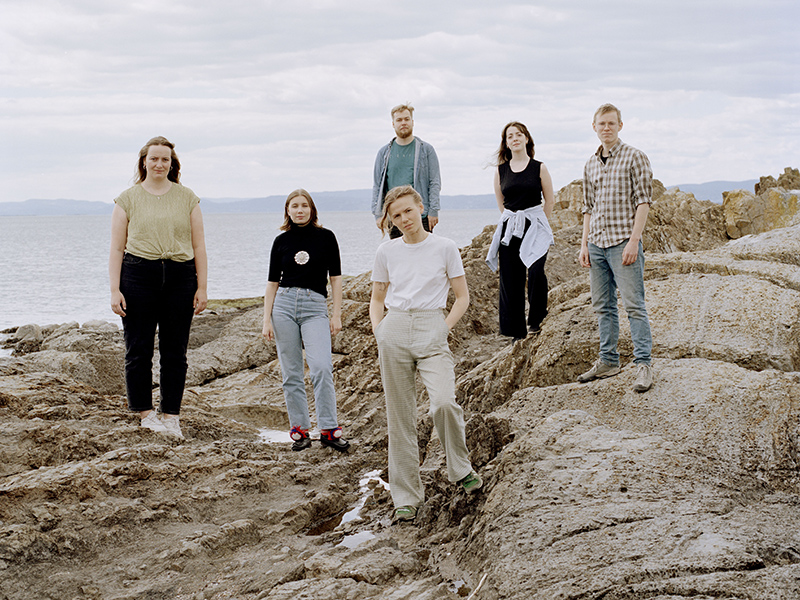Media Brief: People vs. Arctic Oil
Why are Greenpeace Nordic, Young Friends of the Earth Norway and individual applicants taking the People vs. Arctic Oil case to the European Court of Human Rights (ECtHR)?
The organizations and the individual applicants claim that Norwegian oil policy is in breach of the European Convention on Human Rights (ECHR). The ECHR states that all humans have a right to life and private life, and under this provision, the ECtHR has previously interpreted this to include a right to a livelihood and environment that should not be degraded. The organizations and individual applicants are of the opinion that this also includes a right to a healthy environment free from damages due to climate change. These are issues that the court has previously shown interest in, e.g. by forwarding two recent cases regarding climate change previously this year, which might be accepted to the court.
As the People vs. Arctic Oil court case has already exhausted national remedies by taking the case through the Norwegian courts of law, the case is in a unique position to file an application to the ECtHR. A majority of the applications which are filed with the ECtHR are rejected, and having exhausted national remedies increases the chance of admission.
What makes this case special?
This is the first case focusing exclusively on taking oil to the European Court of Human Rights. Norway is a country pushing for further oil and gas expansion in the middle of the climate crisis. There is a wave of new climate litigation taking place all over the world, addressing different aspects of the climate crisis, and cases such as the Portuguese youth case, address the lacking climate ambitions of Norway, among others. However, this case is the first that exclusively focuses on new oil and gas exploration.
What is the European Court of Human Rights (ECtHR)?
The ECtHR is an international court, located in Strasbourg, France. The court is a part of the Council of Europe, where Norway is one of the 47 members.
What types of cases are heard by the ECtHR?
The court receives applications from individuals, groups of individuals or states on breaches of the European Convention of Human Rights (ECHR) by the member countries of the Council of Europe.
What does it mean to file an application with the ECtHR?
Filing an application involves asking the court to hear a case where human rights are alleged to be violated. In our case, it means that we are applying for the ECtHR to hear our case and to judge that Norway has violated fundamental human rights.
Will an ECtHR judgment overrule the judgment from the Norwegian Supreme Court?
The ECtHR is not a supernational body with the power to overrule judgments from national courts of law. But the ECtHR may instruct Norway to change policies or implement actions to amend the environmental damage.
What are the consequences of a victory?
We are alleging that the licences issued by Norway in the 23rd licencing round are invalid, as they violate fundamental human rights. As such, a victory involves the ECtHR agreeing with us, and issuing a judgment in our favour.
The Court judges that Norwegian oil and gas policy does not take sufficiently into account climate considerations, such as assessing climate impact when issuing new licences for oil and gas extraction. In the context of the 23rd licencing round, this implies that the court judges the licences to be invalid. This is the same conclusion as the minority opinion in the Norwegian Supreme Court (NSC). If the ECtHR issues this judgment, it will create significant pressure for Norway to change its oil and gas policy. If the end result is the application of a “Paris test” of new Norwegian oil and gas expansion, it would be a huge victory.
Having the case accepted for deliberation is a victory in itself, as the majority of applications to the ECtHR are rejected. If the application is admitted, this is a recognition that the question of Norwegian oil and gas extraction is important enough to be heard by an international court.
What if Norway does not comply with the judgment?
The ECtHR has no formal sanctions against Norway if Norway does not comply with the judgment voluntarily. On the other hand, given a judgment, it is likely that the question will be an issue which might be raised again by other nations, and will affect Norway’s relation to the EU and European countries.
What happens if we lose?
If the case is accepted, but the ECtHR dismisses our claim, nothing in particular changes. Oil and gas companies may continue as before. We have expanded all legal means to stop these licences and will continue working to stop it in other ways.
How are human rights and the environment related?
Articles 2 and 8 in the European Convention on Human Rights state that individuals have a right to life and to private life. Within these two articles, the ECtHR has previously interpreted a right to protection from environmental harm. Articles 2 and 8 were central in the Urgenda case, which was heard by the Dutch court system, where the Dutch Supreme Court found that Dutch climate targets were too low given the scientific consensus about potential harm from climate change.
The six young Norwegian activists also allege violation of Article 14 of the ECHR about discrimination based on age, the disproportionate burden the climate crisis imposes on youth, and discrimination based on membership of minority population for two of the applicants who are from the Sámi people.
Who is arguing the case on behalf of the organizations and individuals?
Cathrine Hambro and Emanuel Feinberg are the main lawyers writing the application and will be representing the organizations and individuals before the court. They are supported by the Greenpeace Legal Unit, and in particular Michelle Jonker-Argueta and Richard Harvey, as well as advice from a broader network of lawyers and legal scholars.
How long will it take to get a judgment?
The ECtHR states as a goal that it should not take more than three years from an application is filed to a judgment, but this is not strictly heeded, and it’s hard to say how long it will take. We are going to apply for an expedited process, and if accepted, our case will be heard on a quicker timeline.
Why the ECtHR, didn’t you just lose in the Norwegian Supreme Court?
The judgment from the Norwegian Supreme Court was not unanimous. Four of the 15 judges voted that the oil expansion was invalid due to Norway not undertaking sufficient assessment of climate impacts when issuing licences for oil and gas extraction. This is a reason for having the case heard again, in order to expand on these arguments, and viewing them in light of the European consensus on environmental impact assessments.
What’s the likelihood of winning?
The ECtHR has never heard a similar case previously, so the probability of victory is unknown. If the application is admitted, it will in itself be an important recognition of our fight against oil expansion in the Arctic. If the application is admitted and the case heard, the end-point might be a full victory, partial victory or a loss. We will still have accomplished raising awareness about the issue, and we will have tried every means to stop Arctic oil drilling
Have other environmental cases been heard by the ECtHR?
There have previously been several cases heard by the ECtHR, e.g. by individuals seeking protection from environmental damage from factory pollution. Two climate related applications have recently been communicated by the ECtHR: Portuguese youth who are taking 33 countries to court for having been complicit in climate change which is harming their homes, and Swiss grandparents who are taking Switzerland to court for not protecting them against heat waves following from increased temperatures

Få nyheter, oppdateringer og tips om klima og miljø på e-post. Du kan vente deg oppdateringer fra oss noen ganger i måneden, og kan melde deg av når som helst.
Vær med


